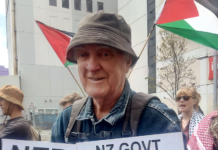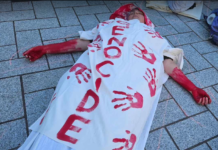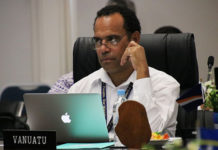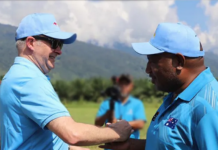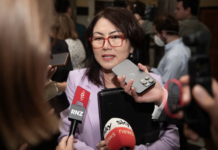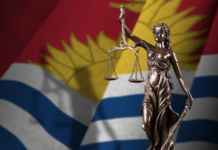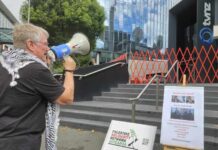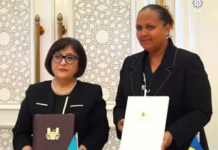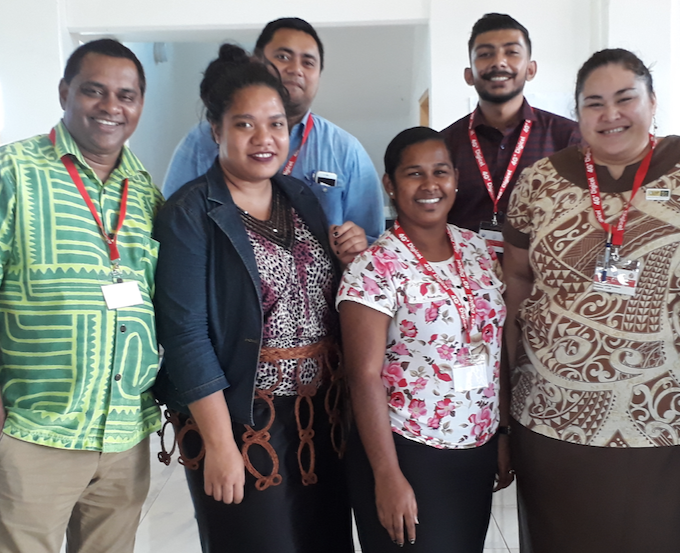
By Geraldine Panapasa in Suva
Information as a public good is a powerful theme for this year’s World Press Freedom Day and serves as a reminder to Pacific Island governments that the public have a right to information that affects their lives, says a Fiji-based media educator.
Associate Professor Shailendra Singh, coordinator of the regional journalism programme at the University of the South Pacific’s Laucala campus, said that as the people’s representatives, governments were sworn to uphold this right to information.
In his World Press Freedom Day message, Dr Singh said Pacific news media played a crucial role in facilitating public access to information.
Besides acting as a conduit for information, he said the media had the additional job of protecting the public’s right to information, further underscoring their pivotal role.
“It goes without saying that this year’s WPFD theme is not just a reminder for governments, but also for journalists and media organisations about their sacred duty to uphold the public right to information, which is a contested, rather than a guaranteed right,” he said.
“Indeed, trends indicate that some Pacific governments are more inclined to attempt to limit the public’s access to information, for one reason or another.
“For journalists, the challenge is to produce accurate, balanced and relevant information to be delivered in timely fashion to as wide an audience as possible. It requires a high level of professionalism to be doing this job diligently on a daily basis.”
Implement greater access
In recognition that information is a public good, Dr Singh said governments could implement greater and easier access to information through the Access to Information Act and Whistleblower Protection Legislation.
“However, regional governments seem more inclined towards legislation that hinders the free flow of information and access to it,” he said.
“For example, the Vanuatu government’s implementation of criminal defamation legislation this week could arguably be seen as an impingement on the public’s right to information.
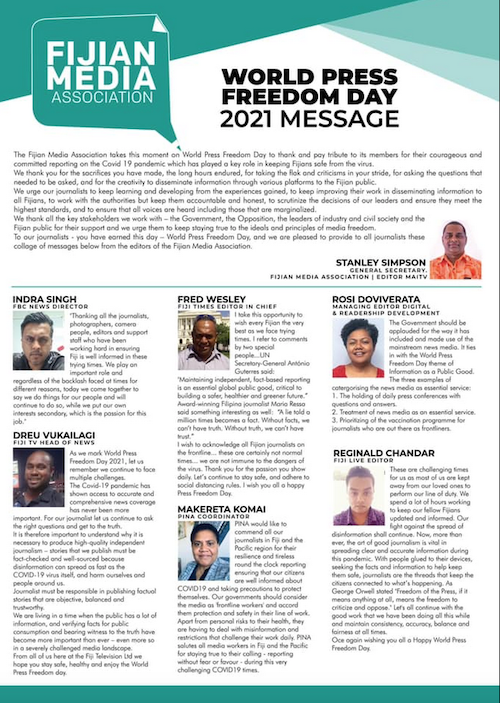
“Besides Vanuatu’s national media, the regional media such as Radio Australia were in the forefront of generating debate and discussion on the issue.
“This is the media fighting government attempts to deny the public the right to a public good – information – by limiting freedom of expression through punitive legislation.”
Before Vanuatu passed criminal libel laws that impact on media freedom and the people’s right to express their opinions, Dr Singh said Samoa had re-introduced its Criminal Libel Act in 2017, and Fiji effected the punitive Media Industry Development Decree in 2010.
“Such legislation weakens democracy and decreases the public’s access to information due to a chilling impact on free speech. As part of upholding the public’s right to information, media are duty bound to challenge such laws by, among other things, writing articles to generate debate and discussion on the topic, with the aim of reforming some of these laws to better serve the people,” he said.
Hurdles still faced
Dr Singh said this year’s WPFD underscored the fact that while information was a public good, the full access to this good still faced many hurdles that needed to be overcome.
Meanwhile, the Fijian Media Association paid tribute to its members for their courageous and committed reporting on the coronavirus covid-19 pandemic, which had played a key role in keeping Fijians safe from the virus.
General secretary Stanley Simpson urged journalists to keep learning and developing from the experiences gained and to keep improving their work in disseminating information.
“Work with authorities but keep them accountable and honest, scrutinise the decisions of our leaders and ensure they meet the highest standards, and to ensure that all voices are heard including those that are marginalised,” Simpson said.
“We thank you for the sacrifices you have made, the long hours endured, for taking the flak and criticisms in your stride, for asking the questions that needed to be asked, and for the creativity to disseminate information through various platforms to the Fijian public.
“To our journalists, you have earned this day – World Press Freedom Day.”
Simpson also thanked stakeholders for working with the media and urged them to keep staying true to the ideals and principles of media freedom.
Essential role of journalists
United Nations Educational, Scientific and Cultural Organisation director-general Audrey Azoulay said the theme of this year’s WPFD underlined the indisputable importance of verified and reliable information.
“It calls attention to the essential role of free and professional journalists in producing and disseminating this information, by tackling misinformation and other harmful content,” she said.
World Press Freedom Day is celebrated on May 3. It has its origins in a UNESCO conference in Windhoek in 1991.
The event ended with the adoption of the landmark Windhoek Declaration for the Development of a Free, Independent and Pluralistic Press.
According to UNESCO, after 30 years, the historic connection made between the freedom to seek, impart and receive information and the public good remains as relevant as it was at the time of its signing.
Asia Pacific Report collaborates with Wansolwara, the USP journalism newspaper and website. Geraldine Panapasa is the editor-in-chief of Wansolwara and an assistant lecturer at USP.





